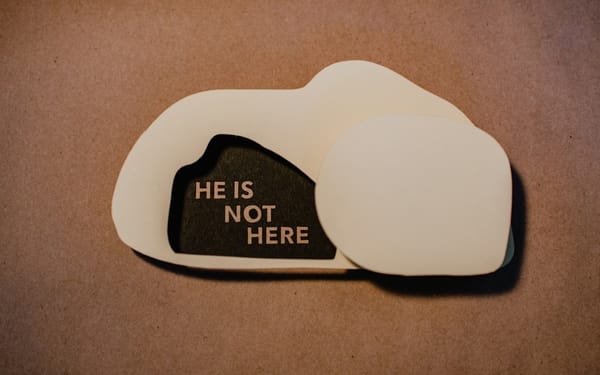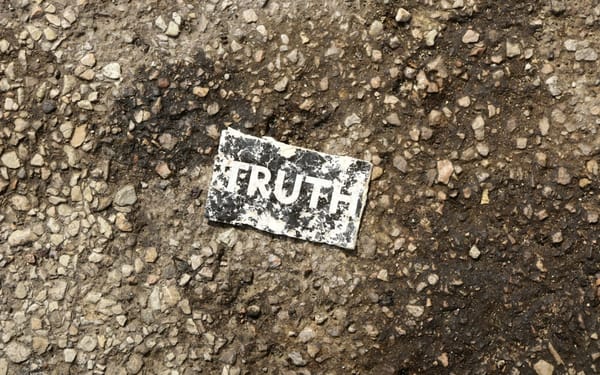Why Diversification Is Critical For Healthy Relationships
The key to all healthy relationships is healthy diversification. What does that look like? Here are a few tips.

Whether it’s with a spouse, friend, family member, or even God, relationships can be confusing, messy, and unpredictable. But here’s the good news: healthy relationships aren’t built on perfection. They’re built on consistent investment.
For the past few weeks, we've looked at what it means to be a Breadcaster and invest in the seven relationships that Jesus invested in during his time on earth. These include his relationships with God, family, close friends, disciples, doubters, the overlooked, and kingdom partnerships.
Here's the problem. Most Christians are great at investing in two or three people groups. This is often formed by their cultural upbringing, race, gender, theological preferences, and personality profile.
Some naturally gravitate towards a hearty quiet time with God, but they struggle to live their faith in the context of real people. Others are quick to help the unseen, even as they leave their families behind. And others are quick to partner with others, but they struggle to sit still and listen to God.
Try This Exercise
If you want a brief, helpful exercise, think back on the seven relational categories listed above. Now, give each of these seven areas a number, with one being the area in which you’re the strongest and seven being the weakest. Be honest. Avoid numbering based on how you think you should respond and shoot for an accurate assessment.
- God ___
- Family___
- Friends___
- Disciples___
- The Overlooked___
- Doubters___
- Kingdom Partnerships___
You’re always going to be stronger in some areas than others. Accept that, and lean into your natural strengths. But it’s critical that some element of each of these seven areas exist in your life. If one is absent, you’re missing out. Don’t buy into the myth that your greatness in one area compensates for inadequacy in another. Instead, learn to diversify your investments.
In the words of the author Ecclesiastes 11, learn to diversify like a farmer.
Diversify Like a Farmer
The preacher of Ecclesiastes certainly believed in this principle of diversification. After challenging readers to "cast their bread" in verse 1, in verses 3-4 the author builds on his investing metaphor and expands the conversation from that of a merchant to that of a farmer. He writes:
3 If the clouds are full of rain, they empty themselves on the earth, and if a tree falls to the south or to the north, in the place where the tree falls, there it will lie. 4 He who observes the wind will not sow, and he who regards the clouds will not reap.
These words speak to the need for indiscriminate investing. Just as clouds pour rain on the earth without thinking of what is below, we should cast our bread liberally into the lives of others. In practical terms,
- Instead of talking about how you’d like to be a great dad, why not put a daddy-daughter date on your calendar right now?
- Rather than settling for a head knowledge of God, decide to walk for one mile every day and spend time talking to him and listening for his voice.
- And when you’re tempted to gripe about your lack of friends and the many times close relationships have burned you, choose to keep casting.
The preacher’s point isn’t to be foolish but to be willing to take some risks. As he points out in verse 4, the person who always waits for the “perfect time” to invest will never do so. If this is you, stop waiting for the perfect time to invest. Do something today, even if it’s small. The next two verses continue this thought.
5 As you do not know the way the spirit comes to the bones in the womb of a woman with child, so you do not know the work of God who makes everything. 6 In the morning sow your seed, and at evening withhold not your hand, for you do not know which will prosper, this or that, or whether both alike will be good.
Verse 5 reminds us there are some things we will never fully understand. We can try, we can study, and we can do our best to understand. However, just as there are aspects of childbirth that remain a mystery, we do not understand how God chooses to work.
From a relational standpoint, sometimes our investments will seem like poor decisions. We’ll spend dozens of hours with a troubled teen, only to see her disregard all we’ve done and move in with her best friend who is a drug addict. We’ll continue to cast to that key partnership we think is important, only to see our would-be partner go with someone else. When times like this happen, it’s easy to grow discouraged when the proper response is to continue to invest.
Like the merchant that invests their goods overseas, the preacher uses verse 6 to give us the imagery of a farmer. Despite a farmer’s best preparations, much of his work is dependent on that which he cannot control. The best chance he has of a great return is to invest much and invest often.





